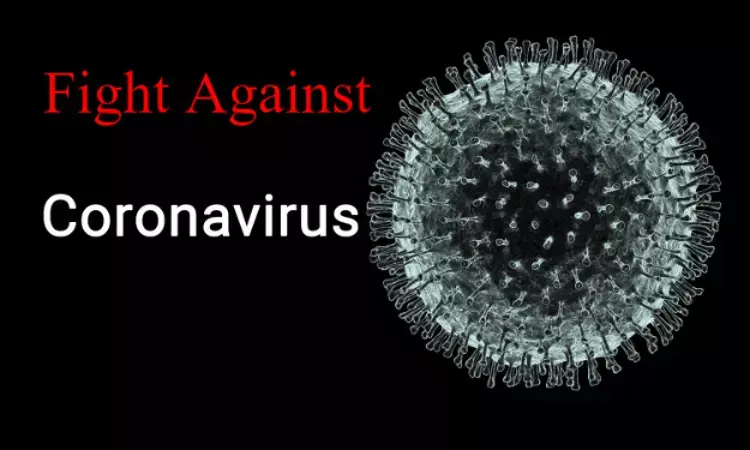- Home
- Medical news & Guidelines
- Anesthesiology
- Cardiology and CTVS
- Critical Care
- Dentistry
- Dermatology
- Diabetes and Endocrinology
- ENT
- Gastroenterology
- Medicine
- Nephrology
- Neurology
- Obstretics-Gynaecology
- Oncology
- Ophthalmology
- Orthopaedics
- Pediatrics-Neonatology
- Psychiatry
- Pulmonology
- Radiology
- Surgery
- Urology
- Laboratory Medicine
- Diet
- Nursing
- Paramedical
- Physiotherapy
- Health news
- Fact Check
- Bone Health Fact Check
- Brain Health Fact Check
- Cancer Related Fact Check
- Child Care Fact Check
- Dental and oral health fact check
- Diabetes and metabolic health fact check
- Diet and Nutrition Fact Check
- Eye and ENT Care Fact Check
- Fitness fact check
- Gut health fact check
- Heart health fact check
- Kidney health fact check
- Medical education fact check
- Men's health fact check
- Respiratory fact check
- Skin and hair care fact check
- Vaccine and Immunization fact check
- Women's health fact check
- AYUSH
- State News
- Andaman and Nicobar Islands
- Andhra Pradesh
- Arunachal Pradesh
- Assam
- Bihar
- Chandigarh
- Chattisgarh
- Dadra and Nagar Haveli
- Daman and Diu
- Delhi
- Goa
- Gujarat
- Haryana
- Himachal Pradesh
- Jammu & Kashmir
- Jharkhand
- Karnataka
- Kerala
- Ladakh
- Lakshadweep
- Madhya Pradesh
- Maharashtra
- Manipur
- Meghalaya
- Mizoram
- Nagaland
- Odisha
- Puducherry
- Punjab
- Rajasthan
- Sikkim
- Tamil Nadu
- Telangana
- Tripura
- Uttar Pradesh
- Uttrakhand
- West Bengal
- Medical Education
- Industry
Social distancing should not be stopped too soon, finds study

Strict social distancing measures, such as closing schools and workplaces, had helped slow community transmission of the COVID-19 coronavirus outbreak in Wuhan, China, to near zero as of mid-March; however, relaxing the restrictions now could be a mistake, suggests a modeling study.
Another wave of COVID-19 would likely hit Wuhan at the end of August if the restrictions are relaxed in March. However, keeping them in place until April could delay the next wave until October, reported researchers in The Lancet Public Health.
A combined approach of physical distancing - comprising quarantine, school closure, and workplace measures - is most effective at reducing the number of novel coronavirus cases compared with many other interventions, according to a study published on Tuesday. The modeling study conducted in a simulated Singapore setting estimated that quarantine plus workplace measures, while less effective than the combined approach, presented the next best option for reducing SARS-CoV-2 cases followed by quarantine plus school closure, and then quarantine only. All intervention scenarios were more effective at reducing cases than no intervention.
The study is the first of its kind to investigate using these options for early intervention in Singapore using simulation. Despite heightened surveillance and isolation of individuals suspected to have COVID-19 and confirmed cases, the risk is ongoing, with the number of cases continuing to increase in Singapore. Schools have not been closed, and workplace distancing is recommended, but it is not national policy [correct as of 23.03.2020].
According to researchers, the social and economic effects of lockdown should be considered. The effects on health, including mental health and interpersonal violence, should also be empirically evaluated and incorporated into future models.
Modeling entertainment, leisure venue, and mass-transport system closures would also be useful in subsequent efforts, as would the effects of closing different kinds of institutions for different durations. Such models would require empirical data on social contacts per day in each type of venue according to the requirement of each country.
For further reference log on to:
DOI:https://doi.org/10.1016/S2468-2667(20)30072-4
Dr Kamal Kant Kohli-MBBS, DTCD- a chest specialist with more than 30 years of practice and a flair for writing clinical articles, Dr Kamal Kant Kohli joined Medical Dialogues as a Chief Editor of Medical News. Besides writing articles, as an editor, he proofreads and verifies all the medical content published on Medical Dialogues including those coming from journals, studies,medical conferences,guidelines etc. Email: drkohli@medicaldialogues.in. Contact no. 011-43720751


